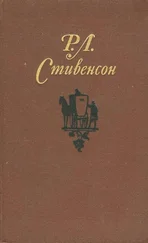Роберт Стивенсон - Memoir of Fleeming Jenkin
Здесь есть возможность читать онлайн «Роберт Стивенсон - Memoir of Fleeming Jenkin» — ознакомительный отрывок электронной книги совершенно бесплатно, а после прочтения отрывка купить полную версию. В некоторых случаях можно слушать аудио, скачать через торрент в формате fb2 и присутствует краткое содержание. Жанр: literature_19, foreign_antique, foreign_prose, Биографии и Мемуары, на английском языке. Описание произведения, (предисловие) а так же отзывы посетителей доступны на портале библиотеки ЛибКат.
- Название:Memoir of Fleeming Jenkin
- Автор:
- Жанр:
- Год:неизвестен
- ISBN:нет данных
- Рейтинг книги:3 / 5. Голосов: 1
-
Избранное:Добавить в избранное
- Отзывы:
-
Ваша оценка:
- 60
- 1
- 2
- 3
- 4
- 5
Memoir of Fleeming Jenkin: краткое содержание, описание и аннотация
Предлагаем к чтению аннотацию, описание, краткое содержание или предисловие (зависит от того, что написал сам автор книги «Memoir of Fleeming Jenkin»). Если вы не нашли необходимую информацию о книге — напишите в комментариях, мы постараемся отыскать её.
Memoir of Fleeming Jenkin — читать онлайн ознакомительный отрывок
Ниже представлен текст книги, разбитый по страницам. Система сохранения места последней прочитанной страницы, позволяет с удобством читать онлайн бесплатно книгу «Memoir of Fleeming Jenkin», без необходимости каждый раз заново искать на чём Вы остановились. Поставьте закладку, и сможете в любой момент перейти на страницу, на которой закончили чтение.
Интервал:
Закладка:
The marriage fell in evil days. In 1823, the bubble of the Golden Aunt’s inheritance had burst. She died holding the hand of the nephew she had so wantonly deceived; at the last she drew him down and seemed to bless him, surely with some remorseful feeling; for when the will was opened, there was not found so much as the mention of his name. He was deeply in debt; in debt even to the estate of his deceiver, so that he had to sell a piece of land to clear himself. ‘My dear boy,’ he said to Charles, ‘there will be nothing left for you. I am a ruined man.’ And here follows for me the strangest part of this story. From the death of the treacherous aunt, Charles Jenkin, senior, had still some nine years to live; it was perhaps too late for him to turn to saving, and perhaps his affairs were past restoration. But his family at least had all this while to prepare; they were still young men, and knew what they had to look for at their father’s death; and yet when that happened in September, 1831, the heir was still apathetically waiting. Poor John, the days of his whips and spurs, and Yeomanry dinners, were quite over; and with that incredible softness of the Jenkin nature, he settled down for the rest of a long life, into something not far removed above a peasant. The mill farm at Stowting had been saved out of the wreck; and here he built himself a house on the Mexican model, and made the two ends meet with rustic thrift, gathering dung with his own hands upon the road and not at all abashed at his employment. In dress, voice, and manner, he fell into mere country plainness; lived without the least care for appearances, the least regret for the past or discontentment with the present; and when he came to die, died with Stoic cheerfulness, announcing that he had had a comfortable time and was yet well pleased to go. One would think there was little active virtue to be inherited from such a race; and yet in this same voluntary peasant, the special gift of Fleeming Jenkin was already half developed. The old man to the end was perpetually inventing; his strange, ill-spelled, unpunctuated correspondence is full (when he does not drop into cookery receipts) of pumps, road engines, steam-diggers, steam-ploughs, and steam-threshing machines; and I have it on Fleeming’s word that what he did was full of ingenuity – only, as if by some cross destiny, useless. These disappointments he not only took with imperturbable good humour, but rejoiced with a particular relish over his nephew’s success in the same field. ‘I glory in the professor,’ he wrote to his brother; and to Fleeming himself, with a touch of simple drollery, ‘I was much pleased with your lecture, but why did you hit me so hard with Conisure’s’ (connoisseur’s, quasi amateur’s) ‘engineering? Oh, what presumption! – either of you or my self!’ A quaint, pathetic figure, this of uncle John, with his dung cart and his inventions; and the romantic fancy of his Mexican house; and his craze about the Lost Tribes which seemed to the worthy man the key of all perplexities; and his quiet conscience, looking back on a life not altogether vain, for he was a good son to his father while his father lived, and when evil days approached, he had proved himself a cheerful Stoic.
It followed from John’s inertia, that the duty of winding up the estate fell into the hands of Charles. He managed it with no more skill than might be expected of a sailor ashore, saved a bare livelihood for John and nothing for the rest. Eight months later, he married Miss Jackson; and with her money, bought in some two-thirds of Stowting. In the beginning of the little family history which I have been following to so great an extent, the Captain mentions, with a delightful pride: ‘A Court Baron and Court Leet are regularly held by the Lady of the Manor, Mrs. Henrietta Camilla Jenkin’; and indeed the pleasure of so describing his wife, was the most solid benefit of the investment; for the purchase was heavily encumbered and paid them nothing till some years before their death. In the meanwhile, the Jackson family also, what with wild sons, an indulgent mother and the impending emancipation of the slaves, was moving nearer and nearer to beggary; and thus of two doomed and declining houses, the subject of this memoir was born, heir to an estate and to no money, yet with inherited qualities that were to make him known and loved.
CHAPTER II. 1833–1851
Birth and Childhood – Edinburgh – Frankfort-on-the-Main – Paris – The Revolution of 1848 – The Insurrection – Flight to Italy – Sympathy with Italy – The Insurrection in Genoa – A Student in Genoa – The Lad and his Mother.
Henry Charles Fleeming Jenkin (Fleeming, pronounced Flemming, to his friends and family) was born in a Government building on the coast of Kent, near Dungeness, where his father was serving at the time in the Coastguard, on March 25, 1833, and named after Admiral Fleeming, one of his father’s protectors in the navy.
His childhood was vagrant like his life. Once he was left in the care of his grandmother Jackson, while Mrs. Jenkin sailed in her husband’s ship and stayed a year at the Havannah. The tragic woman was besides from time to time a member of the family she was in distress of mind and reduced in fortune by the misconduct of her sons; her destitution and solitude made it a recurring duty to receive her, her violence continually enforced fresh separations. In her passion of a disappointed mother, she was a fit object of pity; but her grandson, who heard her load his own mother with cruel insults and reproaches, conceived for her an indignant and impatient hatred, for which he blamed himself in later life. It is strange from this point of view to see his childish letters to Mrs. Jackson; and to think that a man, distinguished above all by stubborn truthfulness, should have been brought up to such dissimulation. But this is of course unavoidable in life; it did no harm to Jenkin; and whether he got harm or benefit from a so early acquaintance with violent and hateful scenes, is more than I can guess. The experience, at least, was formative; and in judging his character it should not be forgotten. But Mrs. Jackson was not the only stranger in their gates; the Captain’s sister, Aunt Anna Jenkin, lived with them until her death; she had all the Jenkin beauty of countenance, though she was unhappily deformed in body and of frail health; and she even excelled her gentle and ineffectual family in all amiable qualities. So that each of the two races from which Fleeming sprang, had an outpost by his very cradle; the one he instinctively loved, the other hated; and the life-long war in his members had begun thus early by a victory for what was best.
We can trace the family from one country place to another in the south of Scotland; where the child learned his taste for sport by riding home the pony from the moors. Before he was nine he could write such a passage as this about a Hallowe’en observance: ‘I pulled a middling-sized cabbage-runt with a pretty sum of gold about it. No witches would run after me when I was sowing my hempseed this year; my nuts blazed away together very comfortably to the end of their lives, and when mamma put hers in which were meant for herself and papa they blazed away in the like manner.’ Before he was ten he could write, with a really irritating precocity, that he had been ‘making some pictures from a book called “Les Français peints par euxmêmes.”.. It is full of pictures of all classes, with a description of each in French. The pictures are a little caricatured, but not much.’ Doubtless this was only an echo from his mother, but it shows the atmosphere in which he breathed. It must have been a good change for this art critic to be the playmate of Mary Macdonald, their gardener’s daughter at Barjarg, and to sup with her family on potatoes and milk; and Fleeming himself attached some value to this early and friendly experience of another class.
Читать дальшеИнтервал:
Закладка:
Похожие книги на «Memoir of Fleeming Jenkin»
Представляем Вашему вниманию похожие книги на «Memoir of Fleeming Jenkin» списком для выбора. Мы отобрали схожую по названию и смыслу литературу в надежде предоставить читателям больше вариантов отыскать новые, интересные, ещё непрочитанные произведения.
Обсуждение, отзывы о книге «Memoir of Fleeming Jenkin» и просто собственные мнения читателей. Оставьте ваши комментарии, напишите, что Вы думаете о произведении, его смысле или главных героях. Укажите что конкретно понравилось, а что нет, и почему Вы так считаете.







